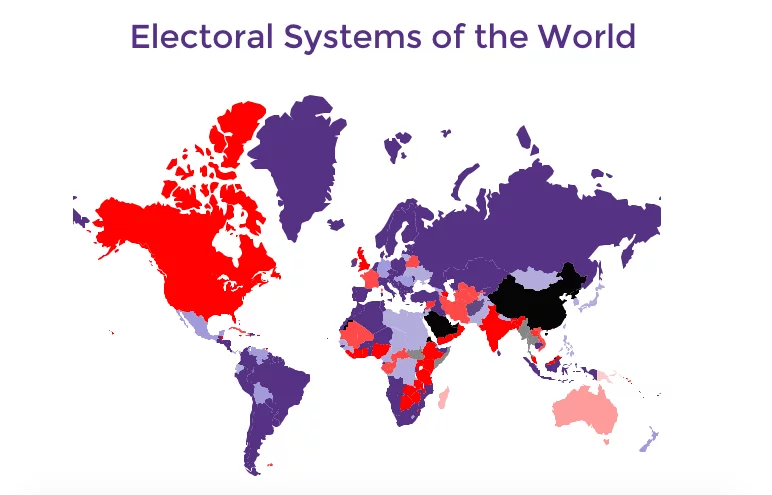Political Participation Strategies: Boosting Engagemen
Explore the most effective political participation strategies. Learn how to boost engagement with proven methods for better involvement in politics.

Strategies to Boost Political Participation and Engagement: An In-Depth Evaluation
Political participation and engagement are the cornerstones of a thriving democracy. They empower citizens to voice their opinions, shape policies, and hold elected officials accountable. However, in many democracies around the world, voter turnout and overall political engagement have been declining. This alarming trend calls for a thorough evaluation of various strategies aimed at reinvigorating political participation. In this comprehensive analysis, we will delve into the effectiveness of diverse approaches, ranging from traditional methods like voter education and mobilization to contemporary tools such as social media and grassroots movements.
Voter Education and Civic Literacy
A well-informed electorate is the bedrock of any democracy. Voter education programs aim to increase political knowledge and civic literacy, thus encouraging more informed participation. These programs often include public forums, civics classes, and voter guides. Research indicates that voter education can significantly boost turnout and enhance the quality of political engagement. Citizens who understand the issues at hand are more likely to participate and make well-informed choices.
However, challenges remain, such as reaching marginalized populations and combating misinformation. Effective voter education must be accessible, neutral, and fact-based to succeed.
Voter Registration and Accessibility
Removing barriers to voter registration and making the process more accessible has shown promise in increasing political participation. Strategies like automatic voter registration, online registration, and extended voting hours can facilitate greater involvement. The effectiveness of these measures is evident in jurisdictions where they have been implemented, leading to higher turnout rates.
Nevertheless, challenges such as voter suppression efforts and the digital divide persist, limiting the reach of these strategies. Striking a balance between accessibility and security is crucial to ensure the integrity of elections.
Get-Out-the-Vote (GOTV) Campaigns
GOTV campaigns are instrumental in mobilizing citizens to vote. These efforts often include door-knocking, phone banking, and text messaging to remind and encourage eligible voters to cast their ballots. Research demonstrates that GOTV campaigns can be highly effective, especially when targeting specific demographic groups or swing states.
However, the impact of these campaigns can be limited by factors such as voter fatigue and diminishing returns. Successful GOTV efforts must be well-organized, data-driven, and tailored to the unique characteristics of the electorate.
Social Media and Digital Advocacy
The digital age has transformed political engagement through social media platforms and digital advocacy tools. These platforms enable rapid dissemination of information, engagement with political content, and mobilization of like-minded individuals. Online movements like #BlackLivesMatter and #MeToo have demonstrated the potential of social media to galvanize political action.
Nonetheless, the spread of misinformation and echo chambers are pressing concerns in the digital landscape. Effective digital engagement requires media literacy, fact-checking, and efforts to counter online extremism.
Grassroots and Community Organizing
Grassroots and community organizing empower individuals at the local level to effect change. These initiatives often focus on specific issues and build momentum through community mobilization, petitions, and protests. Grassroots movements like the Civil Rights Movement and the LGBTQ+ rights movement have reshaped the political landscape.
However, the effectiveness of grassroots organizing can vary widely depending on the issue and the level of support garnered. Sustainability and collaboration are essential for long-term success.
Youth Engagement and Education
Engaging young people in the political process is vital for the future of democracy. Strategies like civics education in schools, youth-focused outreach, and mentorship programs aim to cultivate a sense of civic duty and encourage early participation. Research indicates that young people who are exposed to these initiatives are more likely to become lifelong engaged citizens.
Yet, there are challenges related to apathy, disconnection from traditional politics, and the need for sustained youth engagement beyond elections. Strategies must be dynamic and adaptable to changing youth demographics and preferences.
Proportional Representation and Electoral Reforms
The electoral system plays a critical role in shaping political participation. Proportional representation systems, which allocate seats in proportion to the votes received by each party, can encourage broader representation and reduce the perceived futility of voting for smaller parties. Electoral reforms, such as ranked-choice voting, can also enhance political engagement by allowing voters to express their preferences more accurately.
However, the implementation of such reforms can face resistance from established political elites, and there is no one-size-fits-all solution. Careful consideration and public discourse are necessary to determine the best approach for each jurisdiction.
Civic Engagement through Public Service
Encouraging citizens to participate in public service and community organizations fosters a deeper connection to civic life. Programs like AmeriCorps and Peace Corps provide opportunities for individuals to work on meaningful projects while promoting civic values. Additionally, local volunteer initiatives, such as neighborhood cleanups and food banks, offer avenues for people to contribute to their communities.
Promoting public service as a form of political engagement helps individuals see the direct impact of their efforts on their communities, building a sense of ownership and responsibility for the political process.
Transparency and Accountability Measures
Trust in the political system is a significant factor in motivating citizens to participate. Transparency measures, such as open government initiatives and accessible public records, promote trust by allowing citizens to scrutinize government actions. Accountability mechanisms, such as ethics commissions and ombudsman offices, hold public officials to higher standards and deter corruption.
While transparency and accountability are essential, they alone may not drive participation. Complementary strategies that connect these measures to citizen engagement, such as public hearings and consultations, can help translate transparency into meaningful political involvement.
Encouraging Diverse Political Representation
Political participation is more likely when citizens perceive their interests and identities as represented in government. Encouraging diverse political representation by supporting and mentoring underrepresented groups, such as women, minorities, and LGBTQ+ individuals, can foster a more inclusive democracy.
Efforts to diversify political representation should extend to candidate recruitment, campaign financing, and creating a political culture that welcomes a wide range of voices.
Local and Municipal Initiatives
Political engagement often starts at the local level, where decisions directly impact citizens' daily lives. Encouraging participation in local elections, town hall meetings, and neighborhood associations can serve as a gateway to broader political involvement. People who become engaged in local issues are more likely to extend their participation to state and national politics.
Efforts to strengthen local democracy should prioritize accessibility and inclusivity to ensure that all residents have a voice in shaping their communities.
Boosting political participation and engagement is not a one-size-fits-all endeavor; it requires a multifaceted approach that considers the unique characteristics and challenges of each society. By evaluating and implementing a combination of strategies, including voter education, accessibility reforms, grassroots movements, digital advocacy, and more, we can build more robust and inclusive democracies. These efforts are essential to counter the trends of declining political participation and ensure that citizens continue to play an active role in shaping the future of their nations. In doing so, we strengthen the foundations of democracy and promote a more just and responsive political system.
What's Your Reaction?















